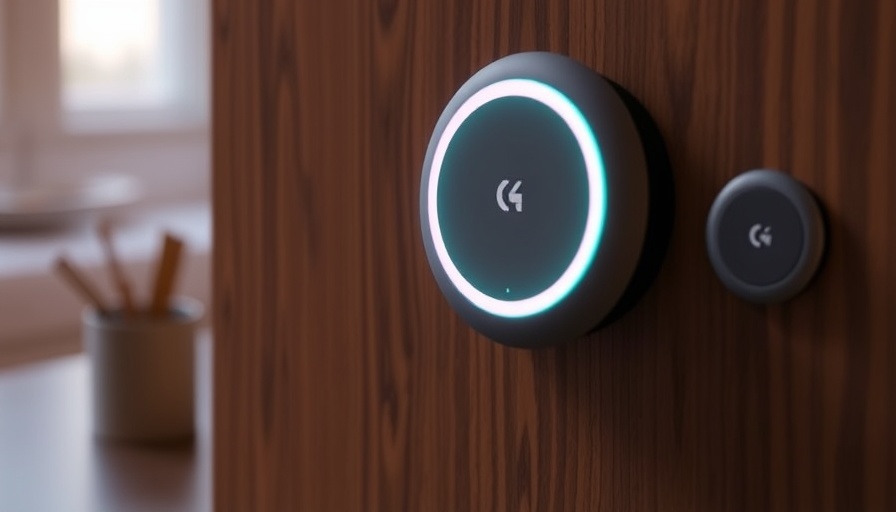
Logitech Pop Smart Home Buttons: The End of an Era
In a bittersweet turn of events for home automation enthusiasts, Logitech has officially announced that it will cease support for its Pop smart home buttons on October 15, 2025. Originally launched in 2016 with much fanfare, these devices were designed to allow users to manage multiple smart home applications at the press of a button, from adjusting lighting to controlling smart blinds. Unfortunately, the once-promising ecosystem is set to become another digital relic, contributing to the growing issue of e-waste in the tech industry.
What Happened to the Logitech Pop Ecosystem?
Logitech's decision to end support for the Pop buttons comes on the heels of a long history with the product. The buttons allowed users to program various functions to a single button press—ideal for households trying to streamline their smart device interactions. Users could easily control platforms like Philips Hue, Sonos, and Lutron. Yet reports of declining functionality plagued the devices, with many struggling to integrate effectively with the app or other smart hubs like Samsung SmartThings.
As support dwindled, customers received an email informing them of the impending bricking of their devices, which effectively cuts them off from all functionality, even those functions that were supposed to work locally without an internet connection. Logitech offered a 15% discount on select products as a gesture of goodwill, but the limited range of eligible products and the geographic restrictions only added fuel to the fire of customer dissatisfaction.
Implications for Smart Home Users
This announcement raises serious concerns regarding the sustainability of smart home tech. The Pop buttons, once considered innovative, now shine a light on the short lifespan of many technological products. As technology continues to evolve, companies like Logitech must find ways to support their devices long term or risk alienating loyal customers, not to mention exacerbating the rising e-waste problem. For consumers investing in smart home tools, the recent Logitech debacle serves as a potent reminder: always consider the future viability of products before committing to a purchase.
DIY Alternatives for Smart Home Innovations
For DIY enthusiasts and homeowners who still want to embrace the smart home revolution, focusing on products and platforms that emphasize local control can offer a more reliable alternative. Solutions like Home Assistant, which allows for local automation without reliance on cloud services, can ensure your devices continue to operate, even as company support wanes. Investing in modular smart home components with long-term support and community backing can help mitigate risks associated with sudden service shutdowns, as seen with Logitech.
Conclusion: Making Informed Choices
The Logitech Pop smart home buttons' demise signals significant lessons for homeowners and service providers alike: market trends change, and not all innovations withstand the test of time. As technology continues to advance, be vigilant—opt for products that promise longevity and robust support. If you're considering implementing new home technology, take a moment to reflect on the implications of product sustainability.
 Add Row
Add Row  Add
Add 




Write A Comment